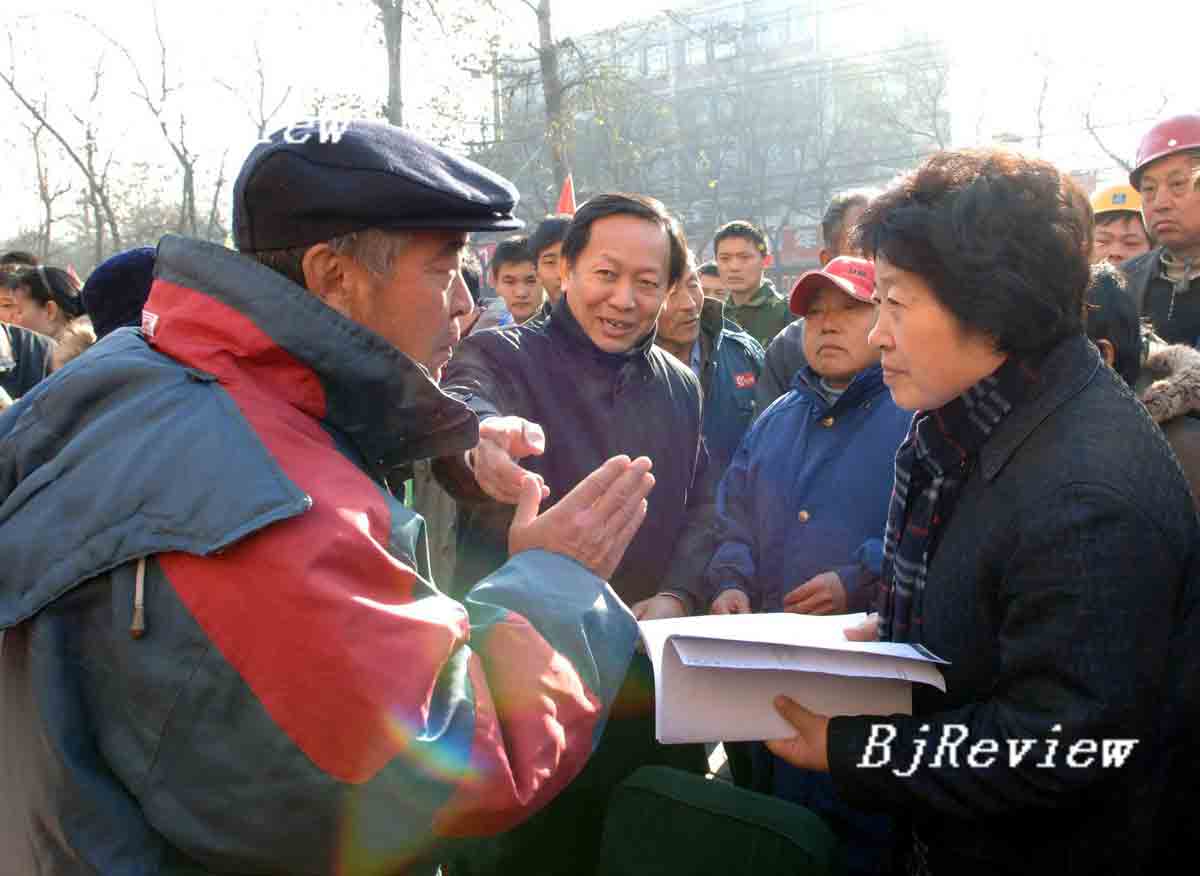
While workers at Wal-Mart China, a subsidiary of the U.S. retailing giant, struggled to set up their first trade union, employees of many companies in Nanjing have been able to negotiate salary increases with their bosses for the past several years.
The workers at Kumho Tire Co., for example, have seen their average salary nearly double to more than 31,000 yuan in 2006 from 16,000 yuan in 1999 "after arduous salary negotiations year after year," said Wu Songping, head of the trade union at the Korean company.
In the past, nearly all state-owned enterprises in China had a trade union-involving all employees-which was in charge of workers' welfare and appeals. The union's administrative body, however, was typically appointed by the enterprise's management. On holidays, the union would send gifts of daily necessities or supermarket coupons to its members; when an employee was sick, union representatives would visit him/her on behalf of the whole company; or, on special occasions, the union would organize small shows or activities for the employees.
"The old-fashioned concept of a trade union must be changed," said Chen Siming, Chairman of the Nanjing Trade Union. "A trade union is much more than [a sponsor of] activities; it should be bound tightly with the workers' real interest-salary."
Nanjing, the capital of Jiangsu Province, was one of the first cities to initiate a collective salary negotiation mechanism. Under a trial regulation on the system for determining employee wages passed by the Ministry of Labor and Social Security in 2000, workers' representatives and management representatives negotiate the salary distribution system and salary level on an equal basis and sign an agreement.
"Normally, we have five or six negotiators from each side," said Zhang Niannian, a veteran salary negotiation instructor from the Nanjing union.
Li Yuanguo, President of Nanjing Plastic Industry Co. Ltd. (NPIC), a private company, sounded relieved when asked about the functioning of the trade union in his company. "In the past, when employees were not satisfied with their salary and when they were not able to afford to go to the hospital, they would come to my office and argue with me," Li said. "But after the trade union was established, the employees would rather turn to the trade union for help. It leaves me more time and energy to think about the development of the whole company instead of every trivial thing involving the workers."
Discussing his rivals in salary negotiations, Li smiled and said, "The workers are very smart and they pick the most talented negotiators, which is very unusual compared with the past."
Li said that before 2004, NPIC was a state-owned enterprise, and all the administrative positions in the trade union were taken by the "goody-goodies". They practically did nothing except send gifts on holidays and organize some activities. "Society changes, and the workers' awareness of self-interest improves," said Li.
Making bargaining successful
Chang Kai, labor professor at Renmin University of China, pointed out two requirements for a successful collective bargaining mechanism. "First, both sides in the negotiation should be independent; second, the negotiations should involve fair play." Chang noted that for a long time, the directors of the majority of Chinese trade unions were appointed by the management and the trade union followed management's decrees.
According to a random survey of enterprises in Nanjing conducted by the government involving 1,000 workers from 100 enterprises, about 20.8 percent of the employees surveyed received a salary of 600 yuan or less per month; 36.9 percent reported a monthly salary of 600 yuan to 1,000 yuan; 25.8 percent got a salary ranging from 1,000 yuan to 1,500 yuan; and only 16.5 percent of the respondents enjoyed a salary over 1,500 yuan.
| 